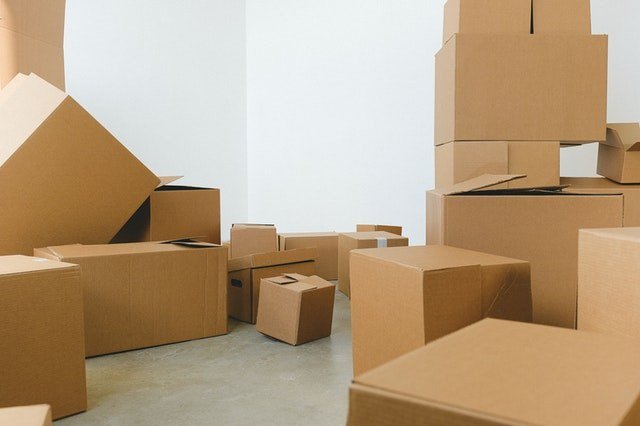Even a short distance move can be chock full of broken boxes, missed appointments, and enough stress to fill a swimming pool. When you add a couple hundred miles of distance on top of the usual stressors of a move, it’s easy to see why long-distance moves are so taxing on relocating families.
So what can you do to lighten the load? Before you map out your move, make sure you don’t fall for any of the eight myths listed below.
It doesn’t matter which moving company you choose
Your moving company is your partner in this stressful chapter of your life. Look for a company specializing in long distance move and ask for referrals from friends and family. You’re traveling hundreds of miles outside of your usual stomping grounds, so you want to make sure you’re doing so with a company you can trust.
While evaluating moving companies, solicit at least three quotes. Each company providing office reinstating services should visit your home to assess your goods before giving you an estimate.
Ensure that the moving company has the proper licensing and insurance. All licensed interstate movers are issued a U.S. Department of Transportation number. Ask the company for its U.S. DOT number and verify their license through the Federal Motor Carrier Safety Administration’s (FMCSA’s) website before committing any money.
You don’t need to hire a professional auto transportation company
You have enough to worry about without having to stress over driving one or more vehicles across the country, not to mention transporting any children, pets, or other adults.
When you hire a professional auto transporter, you remove the maintenance costs and accident risks associated with driving your car a long distance. You also save time, mileage, and wear-and-tear on your vehicle.
Experienced auto transport companies like Guardian Auto Transport, specializing in car shipping to and from Texas and other major U.S.-based cities, will shave hours off your total moving time and relieve stress flare-ups resulting from long-distance road trips.
You should purge as many of your belongings as possible
If you’re a couple of years overdue on your spring cleaning, it may be a good idea to host a garage sale before moving day. But don’t rid yourself of precious belongings just because you think it will make your move easier.
True, it’s better to donate or dispose of some things before your move. These include:
- Bulky items, like books, CD, and DVD collections
- An overabundance of clothing and bedding
- Bathroom items, which you can easily replace
- Old papers, which you can shred
You also want to avoid bringing old appliances or mattresses. Mattresses take up a lot of room in the moving truck, so if they’re past their prime, buy new ones in your new hometown.
You will remember everything you packed
You will have too much on your mind to leave anything to memory. Before the move, take inventory of all your belongings.
Ensure you know how many boxes you have and how many should arrive in each area of your new home.
Your mover should take inventory as well. When you arrive at your new home, you will work together to ensure that all of the boxes on the inventory packing list arrived in good condition.
There’s no quicker or easier way to discover potential auto transport costs than getting car shipping quotes online. The process varies from provider to provider, though, and many car transporters don’t offer this service.
It doesn’t matter when you move
Winter is the least expensive time to move. It is most expensive to move in the summer, as students shift back and forth from school. There are benefits to moving in fall and spring, too, so the season depends on your scheduling and financial flexibility.
The best days of the week to move are Monday through Thursday. Movers like to start bright and early, so plan for a crack-of-dawn start time.
You can use any old boxes to pack
The way you pack is vital, and so are the boxes and other packing materials you select.
Use the sturdiest boxes you can find. Don’t use old boxes or boxes from local stores. These are not designed to withstand a long move, and you risk breaking Grandma’s china if you rely on them.
You can also use clear plastic bins with lids. These are sturdy, and you’ll be able to see your belongings inside.
Unloading the moving truck will be a breeze
Before your move, make sure that you and your movers know what to expect when you arrive at your new home. Is there ample room for them to park on your street? If you’re moving into an apartment, check with your leasing manager about rules and regulations.
Yes, your movers will make your life easier by unpacking your boxes. But it’s still a tough job. Be sure to tip your movers for a job well done.
The moving process is confusing
Yes, it’s a big undertaking to move to another state. But there are resources available to help you navigate the process with confidence.
The FMCSA requires interstate movers to give you two guides before your move: Your Rights and Responsibilities When You Move and Ready to Move.
One of the most vital things you can do is ensure that you are working with a reputable mover. Carefully read their insurance information, and contact your own insurance agent for help with this process.
Before you go
As you can see, there are plenty of things you can do to make your long-distance move more manageable. Plan in advance, thoroughly vet your moving and car transportation vendors and pack carefully to avoid damaging your belongings. You’re traveling with precious cargo, so plan accordingly.




